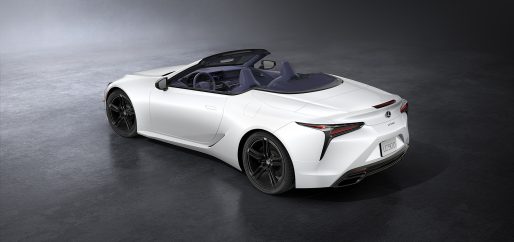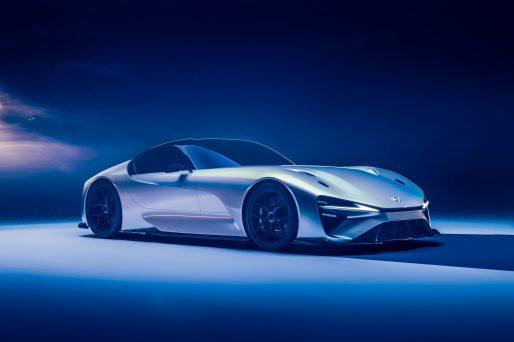The principal figures behind the Lexus LC, Chief Engineer Koji Sato and Chief Designer Tadao Mori, have given a personal insight into the development of the remarkable new luxury coupe.
In the first of four interview features, they reveal how their teams were able to transform the original show-stealing LF-LC concept into an equally radical road-going car.
See also: Lexus LC 500 – driving the prototype
The Lexus LC created a sensation when it was revealed at the Detroit Motor Show earlier this year, breaking the rule that production cars can never be as radical as their original design prototypes.
How did you manage to give the production LC such an exciting design, so close to that of the LF-LC concept?
Koji Sato: “You might think the LC project simply involved turning the LF-LC concept into a road car, but in fact it was far more complex than that. Toyoda-san loved the LF-LC design too, but knew that it was a great challenge for us, possibly the greatest challenge since Lexus created the original LS.
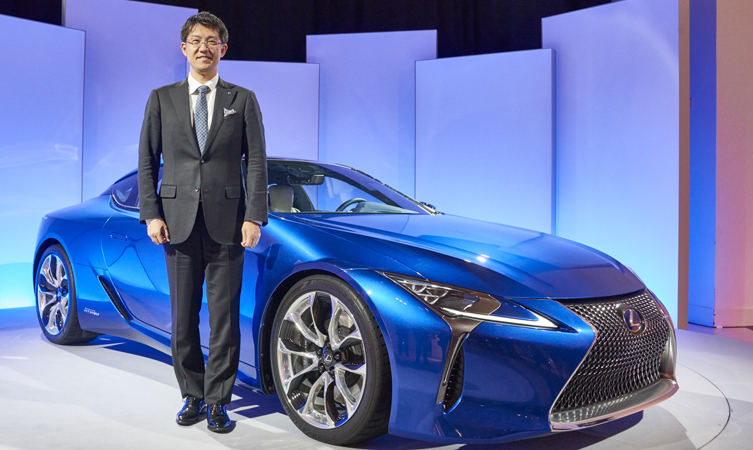
“As an engineer, I wanted the car to have great performance, while my Chief Designer colleague, Tadao Mori, wanted a great look. Despite our different disciplines, we essentially had the same goal and worked together to achieve some amazingly imaginative solutions.
“Every feature on the LC is the result of an integrated approach to design and engineering. The whole team worked together, engineers and designers alike. This is why we have been able to create such a great car.”
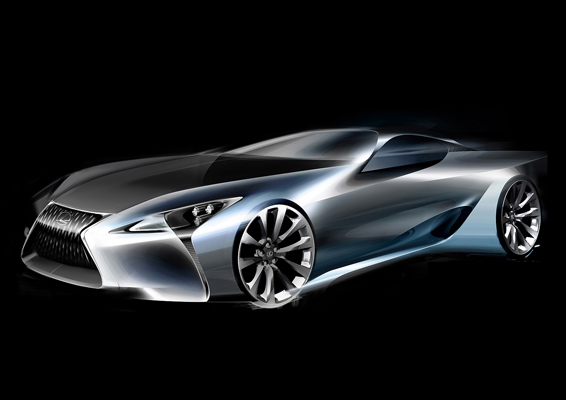
In terms of the design process, what was the most challenging aspect?
Tadao Mori: “Everything presented a challenge, but it was the packaging – how we made use of space in the car – that was the most demanding aspect: how to keep a low roof, but at the same time keep the cabin comfortable or how to fit the car with 21-inch wheels, but still have a low bonnet.
“In fact, to create the low bonnet, our suspension engineers had to rework the components over and over again before we achieved just the effect we wanted. This took months of hard work, but the engineers were so excited about the LC’s design, they were prepared to do what was needed to make it happen.”
Many new technologies have been applied to the new LC. Which are you most proud of?
Koji Sato: “Obviously there are elements such as the carbon fibre and aluminium door construction, the introduction of Lexus Safety System+ and the new Remote Touch Interface that is being introduced with the 2017 multimedia system. The LC also has a shift-by-wire system, which is a first for Lexus. But to tell you the truth, I’m not overly concerned about the LC’s world-firsts, what’s more important to me is the overall result and seeing drivers fall in love with the car.”
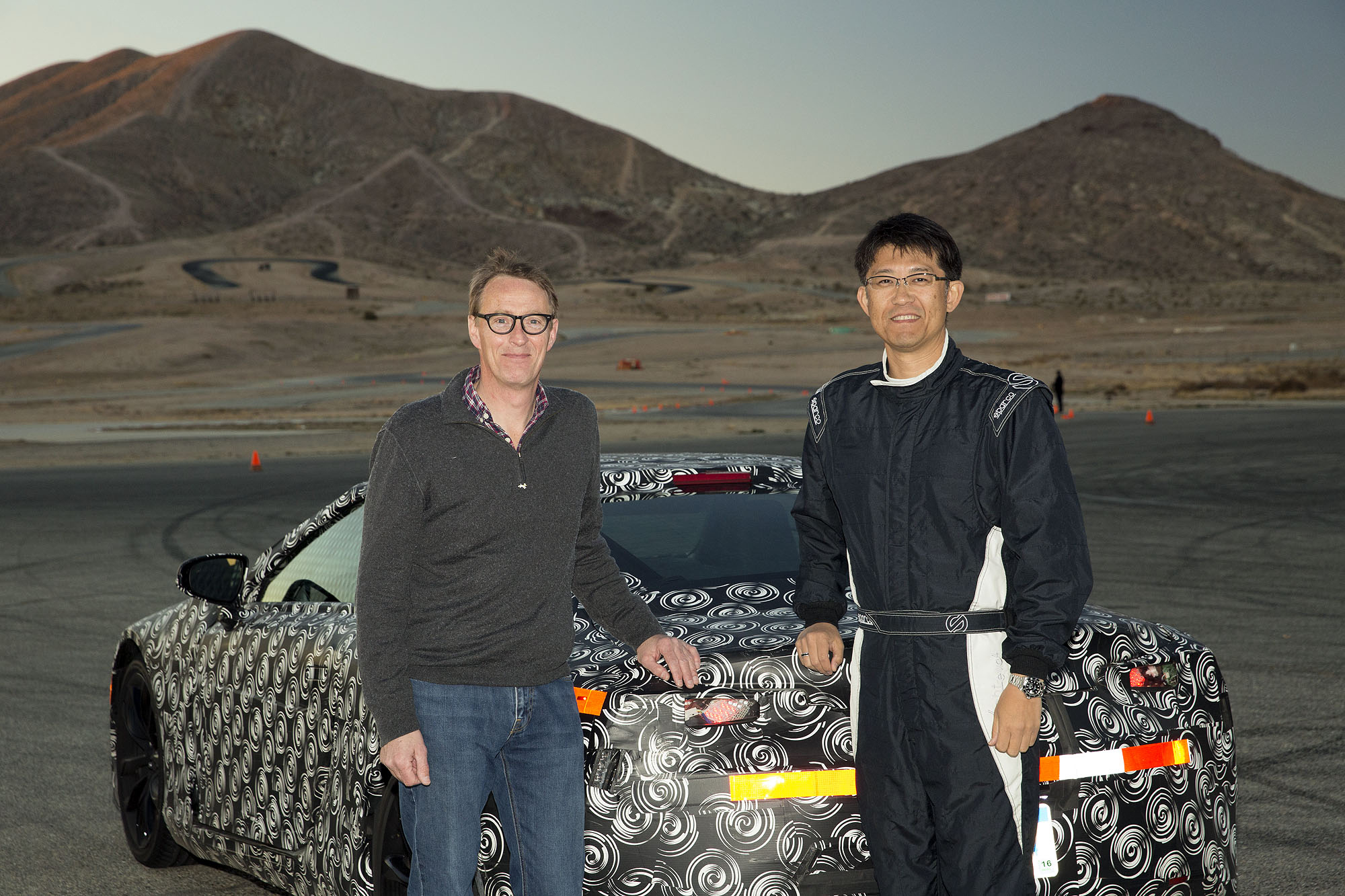
Koji Sato with journalist Andrew English. More details here: Driving the LF LC prototype
Tadao Mori: “I was thrilled how we were able to achieve the small front and rear overhangs by designing one of world’s slimmest headlight units, which uses sophisticated lenses to focus the LED beams. We have also designed very compact rear lights that use twin mirrors to create infinite reflection patterns.”
Koji Sato: “We also achieved another breakthrough with the front suspension towers, making them from aluminium which saved more than 10kg compared with conventional steel.”
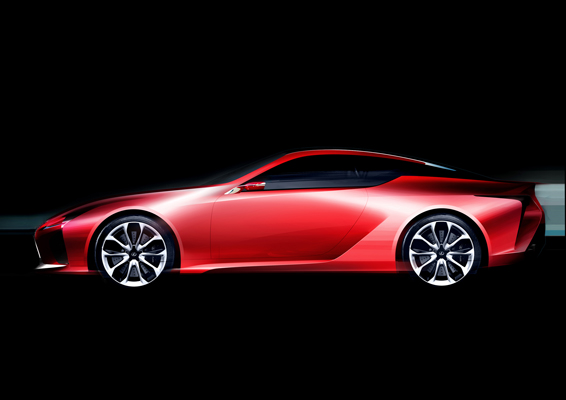
Was there an advantage in having the LF-LC in place as a design template?
Koji Sato: “Because the LF-LC concept was very strong, the final form for the production car was clear from an early stage. This meant we had a different design process to most cars.”
Tadao Mori: “It meant we could concentrate very hard on the car’s details, as we had more time for this compared to other projects”
With the exterior design of the LC you stayed very close to that of the concept. But the interior of the LC is quite different from the LF-LC. What was the reason for this?
Tadao Mori: “When Akio Toyoda sat in the LF-LC for the first time, he was impressed but said he could not imagine it as the interior of a genuine driver’s car.
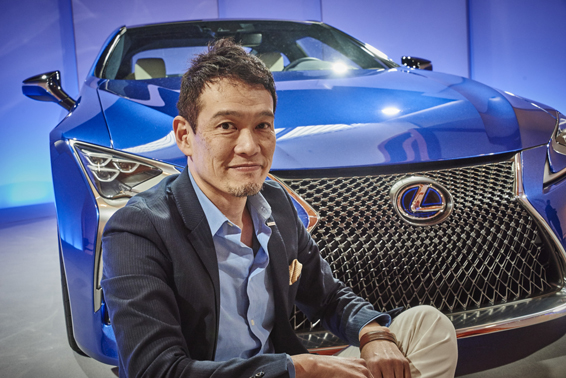
“We set to work to create a more welcoming space. We wanted to make the driver and passenger feel comfortable and at home, something you can see in details like the two handgrips placed next to the passenger seat.
“The designers spent a great deal of time driving the LFA and other high performance cars in order to get a deeper understanding of how the engineers’ passion for a great driving experience can be supported by the design of the cabin and the ideal positioning of instruments and controls.”
What manpower resources did you have working on the LC project and what was your timeframe?
Koji Sato: “There were – and are – more than 4,000 people involved in the LC project and they have done an amazing job. This is a car with a completely new platform that was delivered in five years instead of the usual six. It was hard work, but a good test for everyone to focus on a common goal and make it happen.”
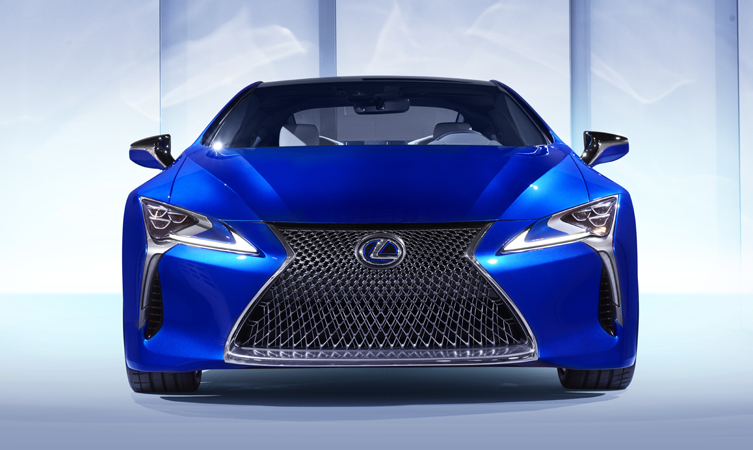
See also: How does the Lexus LC 500h Multi Stage Hybrid System work


